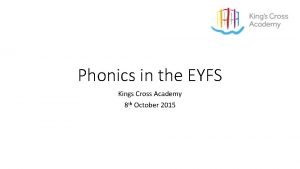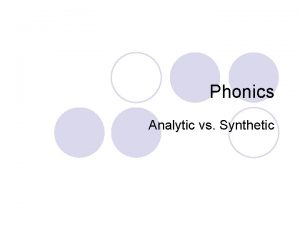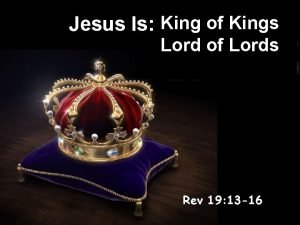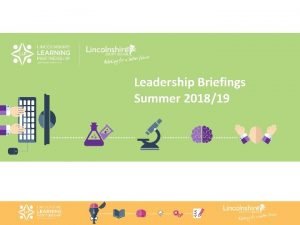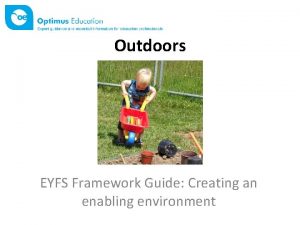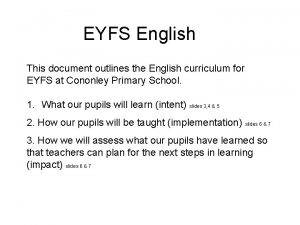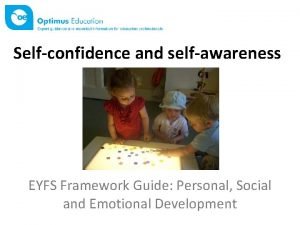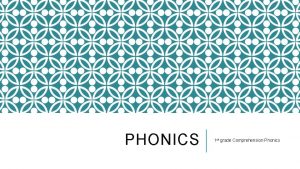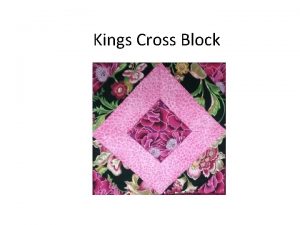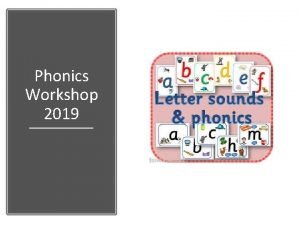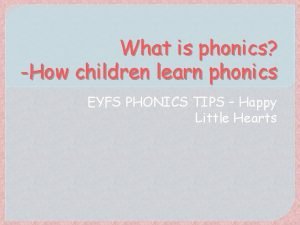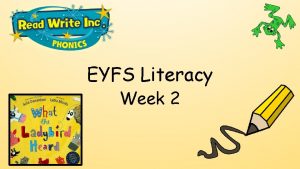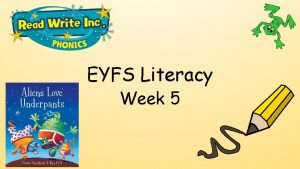Phonics in the EYFS Kings Cross Academy 8







- Slides: 7

Phonics in the EYFS Kings Cross Academy 8 th October 2015

What is phonics? • Synthetic Phonics is a way of teaching reading. • Children are taught to read letters or groups of letters by saying the sound(s) they represent – so, they are taught that the letter l sounds like llllll when we say it. Children can then start to read words by blending (synthesising) the sounds together to make a word. • When your child is learning to read there are two crucial things to learn: • the sounds represented by written letters. • how to blend the sounds together to make words.

Oxford Owl • http: //www. oxfordowl. co. uk/for-home/reading-site/experthelp/phonics-made-easy

What is taught first? • Phonics sessions: Children are first taught a small group of sounds, then learn to blend the sounds to read words made up of those sounds, e. g. mat. Then they are taught more sounds and learn to blend those too. • The order in which the sounds are taught will vary depending on which scheme we use at school, but it won’t be alphabetical order because that’s not the best order to allow your child to start blending the sounds for reading. Our chosen scheme this year consists of a combination of Letters and Sounds and Anima-Phonics. (more later) • Speedy recognition of the sound for each letter is really important too, so your child can blend them to read words easily.

What the children currently do in school…. • Follow “Anima-Phonics” and “Letters and Sounds” EYFS • Daily adult led phonics sessions • Top up activities to consolidate learning in class. (child initiated and adult guided) • Encourage the children to apply their phonic knowledge through their mark making and writing opportunities. • Through home reading and phonics sheets • Participate in ongoing assessments by the team (games, carpet sessions etc. ) • Mr Beveridge – example of lesson.

Definitions you will hear teachers referring to. • Blending • To say the individual sounds that make up a word and blend them together to hear the whole word for reading e. g. s-a-t becomes sat. We say you blend to read and segment (see below) to spell. • Segmenting To write or spell a word by listening for the sounds in the word and deciding which letters represent those sounds. We say you blend to read and segment to spell. • Decoding • To read a word by saying the sounds then joining, or blending, those sounds together to form the word. • Digraphs • two letters make one sound (ai ea) • Trigraph: • three letters make one sound (igh dge)

Sounds of the English Phonic Code How do we pronounce each phoneme? (sound) https: //youtu. be/Iw. Jx 1 NSine. E
